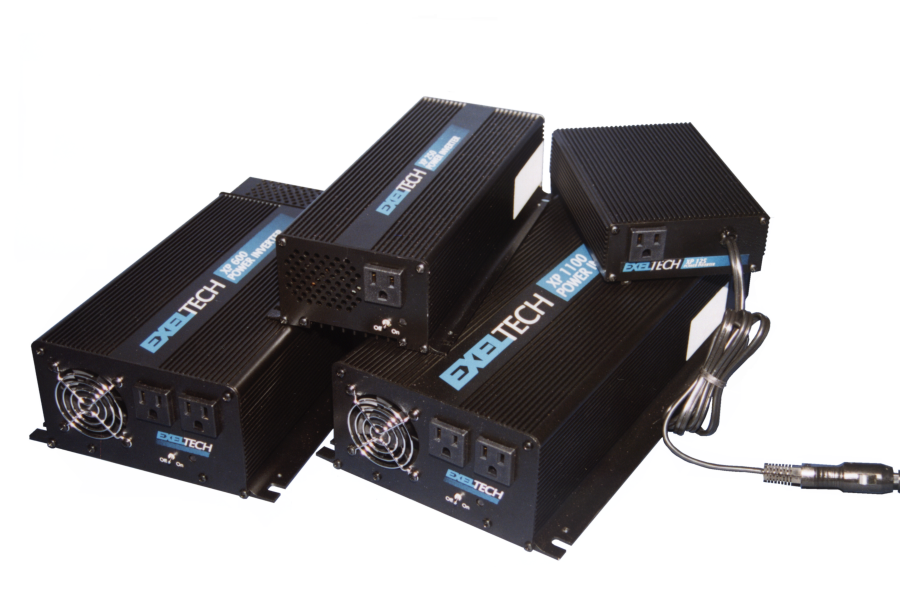In recent years, the need for energy efficiency and sustainable practices has become increasingly important, not only for environmental reasons but also for economic benefits. As a result, educational institutions are becoming aware of responsible energy consumption and are incorporating modular inverters into their energy systems.
8 Reasons Why Schools Should Invest in Modular Inverters
Industrial power inverters offer several advantages that make them a worthwhile investment for schools. Here are eight reasons why schools should consider investing in these inverters:
1. Energy efficiency
These inverters can maximize energy efficiency by converting the direct current (DC) produced by renewable energy sources, such as solar panels or wind turbines, into alternating (AC) electricity. Schools can efficiently utilize this generated energy to power various devices to reduce their overall energy consumption and lower their electricity bills.
2. Integration of renewable energy sources
Schools are increasingly adopting renewable energy sources, such as solar panels, for their sustainability efforts. These inverters play a vital role in integrating these renewable energy sources into the existing power infrastructure of schools. They ensure smooth energy conversion and grid synchronization, allowing schools to maximize their renewable energy investments.
3. Scalability and flexibility
These industrial power inverters have a modular architecture, meaning they consist of multiple independent units that you can easily add or remove as per the energy requirements.
This scalability and flexibility make them ideal for schools with varying energy needs. Schools can start with a smaller capacity and gradually expand by adding more inverters as their energy demands increase.
Their adaptability helps schools optimize their investments by matching energy generation with consumption more precisely.
4. Enhanced reliability
Traditional centralized inverters have a single failure point, leading to a complete shutdown of the entire solar or wind energy system.
In contrast, modular inverters have a decentralized design, where individual units operate independently. If one unit fails, the rest continue functioning, minimizing downtime and ensuring a reliable power supply. This fault-tolerant design is especially essential for schools where uninterrupted power is crucial for daily operations.
5. Maintenance and serviceability
They offer improved maintenance and serviceability benefits compared to centralized inverters. Since the units operate independently, it is easier to identify and isolate any faulty components for repair or replacement.
This feature reduces downtime and simplifies troubleshooting procedures.
6. Real-Time Monitoring and Data Analytics
These inverters have advanced monitoring and data analytics capabilities, allowing schools to gain insights into their energy consumption patterns. So schools can make informed decisions about energy management strategies by tracking energy usage, identifying peak demand periods, and monitoring system performance.
These insights can help schools optimize their energy usage, identify areas for improvement, and implement energy-saving measures.
7. Educational opportunities
Investing in industrial power inverters provides educational opportunities for students. By incorporating these technologies into the curriculum, schools can educate students about renewable energy, power conversion, and sustainable practices.
Additionally, students can gain hands-on experience with these inverters, monitoring their energy generation and analyzing the impact of renewable energy sources on overall power consumption. Such practical learning fosters environmental awareness and encourages future generations to adopt sustainable energy practices.
8. Environmental sustainability
Schools can significantly reduce their carbon footprint and contribute to environmental sustainability by investing in industrial power inverters and integrating renewable energy sources.
Generating clean energy through solar panels or wind turbines helps schools minimize their dependence on fossil fuels, reduce greenhouse gas emissions, and promote a greener and more sustainable future.
In conclusion, investing in modular inverters empowers schools to become more energy-efficient, sustainable, and resilient to power disruptions. It aligns with the growing focus on renewable energy and offers educational benefits, making it a worthwhile investment for schools.
Get a premium range of inverters from Exeltech, and let it be your partner in creating a greener tomorrow!





